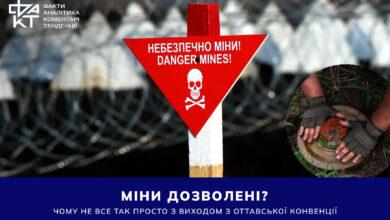Fico’s resignation: will it be the beginning of a new era for Slovakia

Among the active names are discussed in the wave of information resonance, along with such odious figures as Donald Trump, Elon Musk and Vladimir Putin, the Prime Minister of Slovakia, Robert Fico, always appears. Like the rest of the mentioned names, his name sounds mostly in a scandalous and controversial context.
Now there is another reason to mention him. In Slovakia, a decisive moment is brewing: leaving differences, the opposition joined forces, to challenge Prime Minister Fizo’s government. He is accused of neglecting the state, authoritarianism and destroying democratic foundations. This struggle takes on a symbolic meaning – evil, authoritarianism and treachery must not go unpunished, and the time for retribution seems to have come. Every step of the opposition is a blow to the swaying throne, and the dissatisfaction of the people is a harbinger of the inevitable fall of the self-confident ruler who, instead of solving the internal problems of his state, sows confusion in international diplomacy, reducing the chances of a constructive solution to the military conflict in Ukraine.
What is the strength of the Slovak opposition and the disagreements of the current government
The political situation in Slovakia remains difficult, which negatively affects both the internal stability and the international reputation of the state. The main factors of tension are conflicts in the ruling alliance, opposition between the authorities and the opposition, and disputes over foreign policy.
In the ruling coalition, which unites the parties Smer-SD, Hlas-SD and the Slovak National Party (SNS), serious internal disagreements. SNS leader Andrey Danko openly criticizes Hlas-SD representatives, accusing them of insufficient professionalism, which leads to growing distrust. Conflicts are intensifying due to the struggle for key positions, in particular for the position of the Speaker of the Parliament. The election of Peter Pellegrini to the post of president became an additional stumbling block, because the SNS and Hlas-SD cannot agree on filling the vacant position, which complicates the work of the coalition and the decision-making process.
The situation in the country worsens due to the active actions of the opposition, in particular the Progressive Slovakia party, which refuses to participate in parliamentary meetings, emphasizing the insufficient support of the government in the coalition. The opposition is trying to weaken the government’s position and create conditions for early elections. the seriousness of the political situation is evidenced by the fact that Prime Minister Fizo recognized such a possibility.
History of the conflict between the Fizo government and the opposition
The standoff between Fico’s government and the opposition has long-standing roots. One of the first strategies of the opposition was to accuse the government of being involved in corruption scams related to state procurement. In recent years, the opposition has emphasized corruption scandals among high-ranking officials, which quite naturally weakened citizens’ trust in the authorities.
Relations between the Fico government and the opposition have deteriorated significantly during the covid pandemic. The opposition accused the authorities of poor organization of the fight against the crisis, lack of clear plans and weak support for small businesses. The government replied that the opposition was only trying to aggravate the situation in the country.
The year 2023 was especially difficult, when the opposition repeatedly tried to declare no confidence in the government. Although they did not have enough votes, these attempts increased political pressure. Protests organized by the opposition gained publicity and further weakened the government’s position.
The resulting tension affects foreign policy as well. The Russian-Ukrainian war has become a key issue: international partners are worried about the pro-Russian statements of the SNS party, which may lead to the isolation of Slovakia on the international arena.
The economic component of the conflict is also very important. The opposition criticizes the government for failing to ensure sustainable economic development, citing slow growth, high unemployment and a lack of investment. Constant corruption scandals discussed in the media further undermine trust in the authorities and are considered the main cause of economic problems. The opposition also accuses the government of restricting freedom of speech and lack of transparency in governance.
Fortunately, civil society is actively influencing the situation. Mass protests organized by activists and public movements illustrate citizens’ dissatisfaction with both the government and the opposition, which do not live up to their expectations. Many respondents consider the political system corrupt and ineffective. At the same time, the growing activity of public initiatives demonstrates the desire for change and increases the pressure on politicians.
It is obvious that Slovakia’s internal policy is significantly influenced by its relations with the EU and NATO. Their membership requires adherence to democratic principles, unity with Western partners, and implementation of joint political decisions. However, the same SNS criticizes further European integration, which sows division in society. The EU financially supports Slovak reforms, but constant corruption scandals raise doubts in Brussels, which may affect the amount of aid. For its part, NATO helps strengthen the country’s defense, but full cooperation is complicated by pro-Russian sentiments among some politicians.
Prime Minister Fico’s foreign policy is an unconditional subject of controversy. His trips to Russia are evaluated in different ways: supporters talk about the importance of economic cooperation with Moscow, while critics see it as a threat to unity with the EU and NATO. Such visits are perceived as support for an autocratic regime that violates international law, which negatively affects Slovakia’s reputation in the West and may lead to its isolation.
Will there be a vote of no confidence in Fico’s government
The likely scenarios for the further development of events in the case of a vote of no confidence in the government are either a successful or a failed vote of no confidence in the government. In the event of a vote of no confidence in Fico’s government, an interim government may be formed or early elections may be called. This can cause significant political changes, including the coming to power of the opposition “Progressive Slovakia”. Such events can change the foreign policy course to be pro-European and pro-Atlantic. However, this scenario also carries the risk of prolonged political instability.
In the event of a failed vote, Fizo’s government may temporarily strengthen its position, but this is unlikely to resolve deep internal conflicts and public criticism. The opposition is likely to continue the pressure by organizing protests and further attempts to initiate no confidence. This can polarize society and increase social protests, which will affect the political future of the country.
The future of Slovakia and Prime Minister Fico depends on how the government handles the current crisis. If this does not happen, Fico may lose his influence and his party the support of voters. In the country, the need for reforms is brewing in order to restore the trust of citizens and strengthen relations with the EU and NATO.
There is a risk that the process of resigning the government will cause legal disputes. For example, questions may arise regarding the legality of a vote of no confidence due to possible violations of procedures or manipulation of rules. In this case, the case may be referred to the Constitutional Court, which will prolong the process and exacerbate the political situation.
The actions of the government and the opposition are evaluated differently by different social groups. Business criticizes the government for lack of transparency and weak economic stimulus, while the opposition gains support thanks to promises of reforms. Young people actively participate in protests and usually support opposition forces, especially “Progressive Slovakia”. Pensioners, who usually support Smer-SD government officials, remain loyal, but their support is waning due to economic hardship.
Public organizations criticize the authorities for their weak fight against corruption and support the opposition. However, they also emphasize that the opposition needs more concrete actions and less populism.
…A drama is unfolding on the political horizon of Slovakia: the opposition, which has remained in the shadows for a long time, is gaining unprecedented momentum. According to the latest data, “Progressive Slovakia” and “Freedom and Solidarity” received strong support – from 35 to 40 percent of voters. Such an unexpected rise indicates not only the weakening of trust in the ruling coalition, which, despite everything, still retains many supporters, but also the desire of society for change. However, the key to the future of the opposition lies not only in criticizing the regime. The real test will be their ability to offer real, convincing solutions capable of pulling the country out of the current stagnation. Will they have enough courage, wisdom and strength for this? Time will tell.
Tetyana Viktorova





